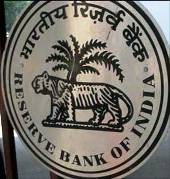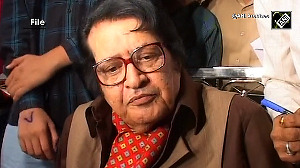 The Reserve Bank of India can pay interest to banks on their cash reserve ratio deposits if the laws are changed, senior-most Deputy Governor Kamalesh Chandra Chakrabarty has said.
The Reserve Bank of India can pay interest to banks on their cash reserve ratio deposits if the laws are changed, senior-most Deputy Governor Kamalesh Chandra Chakrabarty has said.
"Under the present law, I can't pay interest on the CRR. . .that modification came four-five years back . . .The government should change the rule (for payment of interest on CRR)," Chakrabarty told PTI in an interaction at his office.
"If the CRR is a cost on banks, then they can adjust that somewhere else," he added.
Explaining the rationale behind the regulatory mandate, the deputy governor, who looks after banking supervision, apart from a host of other departments at the central bank, said the CRR is charged on banks because only they can create money.
"Who creates money?. . . It's only bank deposits that too chequeable deposits or demand deposits that create money.
"That's why CRR is imposed only on banks. . .if a bank gives money to NBFCs, it will go not to NBFC but to some bank accounts (of NBFCs)," Chakrabarty, who recently got a two-year extension, said.
Non-banking finance companies, insurance companies or any other financial institution can't be equated with the banks with regard to CRR as they don't create money, he said.
The CRR is the portion of deposits that banks have to keep with the RBI
CRR stands at 4.25 per cent currently, while the policy rate or repo (rate at which the RBI lends to banks) stands at 8 per cent.
Most of the profits that RBI accrues (last year it paid Rs 16,000 crore or Rs 160 billion to the government as dividend alone) come from the CRR, and there have been media reports in the recent past that North Block favours the idea of paying banks interest on the CRR.
The RBI used to pay interest on CRR in the past, but a few years back the government had changed the rules in this regard and since then it was stopped.
At the current level, 1 percentage point reduction in the CRR can release Rs 70,000 crore (Rs 700 billion) liquidity into the system.
Globally only very few countries have CRR requirements on their banks and most of them get paid for it as well.
For instance, the US Fed since the Lehman crisis started paying interest on CRR, which currently stands at 0.25 per cent, the benchmark lending rate in the US.
The CRR came into news recently, after State Bank of India chairman Pratip Chaudhuri described 'CRR as a waste of money and leading to huge loss to banks' and called for scrapping it or at least getting an interest on these deposits.
He had also called for banks getting a level-playing field as insurance companies and NBFCs are not required to keep such mandatory funds with regulators.











 © 2025
© 2025